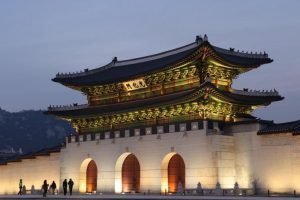The Vezo of Madagascar spend their lives sailing in their pirogues, following the wind and currents in search of fish schools. They live in harmony with the ocean and are committed to protecting it.
Their small, light outrigger canoes, carved from a tree trunk, caress the waters of the Indian Ocean, driven by the southern trade winds that blow in the Mozambique Channel. They move continuously along the southwestern coasts of Madagascar, taking advantage of the alternating winds and tides that stir the waters of the Tropic of Capricorn.
For over a thousand years they have been part of the superb landscape of this remote region of the Big Island. They live by fishing, following schools of tuna, barracuda, and marlin for days on end. When they touch land in the evening, they transform the square sails of the boats into makeshift tents under which to spend the night. And the next day they return to sailing. They lead an existence in perpetual movement that has earned them the reputation of “nomads of the sea”.
They are called Vezo, a name that does not indicate a true ethnic group but rather a way of life: in symbiosis with the sea. Unable to move away from the water, they inhabit a thin coastal strip between the cities of Itampolo (south) and Morondava (north), between the turquoise waters of the ocean and soft white beaches that resemble talcum powder.
Legend has it that they were born from the encounter between a fisherman and a mermaid so beautiful that the man, madly in love, tried in every way to keep her at home. But she could not live outside the sea. One day she convinced him to take a boat ride and, when they were out at sea, she dived into the water never to return. The fisherman’s despair was alleviated only by the presence of his children. They were the first Vezo. Growing up, they would take the road to the sea to try, in every way possible, to meet their mother.
Like most of the populations of Madagascar, the Vezo have Asian origins. Their language is similar to a dialect widespread in southern Borneo. However, the Vezo are not formally considered a people: according to ethnologists, they are a subgroup of the Sakalava family (a people of shepherds and farmers with whom they also exchange seafood for rice and manioc). It is not difficult to recognise a Vezo. One can recognise one by the signs that time has left on his body.
First of all, fishing marks the hands: the lines, as soon as a fish bites, cut the skin into characteristic signs; the chest is also involved, since, while paddling, the lines are wrapped around the waist so as not to lose them; if a fish bites, the friction directly affects the chest.
The reddish scratches heal into white streaks to show those who want to understand the “vezosity” of a person. In contrast, the women show their feet wounded by the collection of shellfish on the coral reef or wild plants on the dunes, but they also indicate their quality of Vezo because they do not have calluses on their hands like the Masikoro farmers.
What is surprising about this group is the extraordinary wealth of knowledge about the environment preserved by the fishermen and passed down through the families for centuries. The great ability of the Vezo to live in close relationship with the ocean, enjoying its fruits, deeply respecting the rhythms of nature, without in the least affecting the delicate balances of the marine habitat.
While in other parts of the world the ocean waters are plundered by over-exploitation of fish, the Vezo continue to fish and collect from the sea only what is strictly necessary to live. They do not know greed or gluttony. They strictly respect a series of taboos – fady -, prohibitions of a magical-religious nature that enable them to preserve the environment.
For example, do not fish certain fish species during the breeding season, do not step on the parts of the beach where eggs laid by sea turtles are found. According to local beliefs, transgressing a prohibition, breaking a fady, would produce severe punishments generated by forces that control human destinies.
Therefore, all Vezos respect the traditional code of behaviours and prohibitions – most of which refer to the preservation of nature – drawn up in ancient times, well before modern international laws and conventions for the protection of the seas were ratified.
They provide a valuable lesson, especially today when even the waters of Madagascar are threatened by progressive impoverishment due to industrial fishing and climate change. The Vezo, however, are aware that only by protecting the marine biodiversity of these waters will they be able to guarantee food security and maintain their lifestyle unchanged, passing on knowledge from one generation to the next.
“We fish and dive to earn a living,” says Symphorien Soa, a Vezo fisherman. The sea is the first thing we think of when we wake up in the morning. And it is what we dream of when we go to sleep”. They live day by day until the end of their existence, when they are buried in tombs surrounded by poles with exotic and marine representations: when they fall to the ground, the soul of the deceased will be able to free itself definitively. (Irene Fornasiero/Africa)









